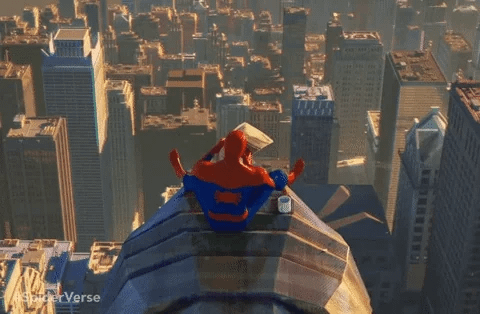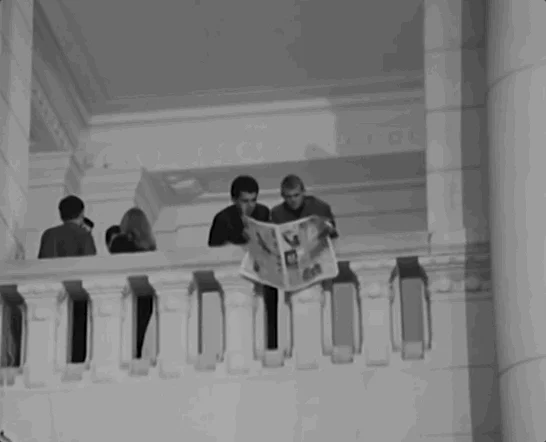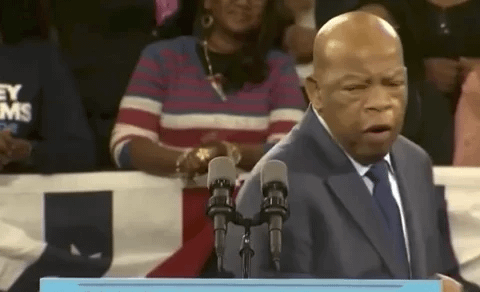I’ve never thought of myself as the kind of person who would write an Op-Ed. But recently, I reached out to a newspaper with an urge to write about something that was on my mind. So I spent the last week writing and rewriting it and the newspaper people at The Thrifty Nickel were into it, but didn’t wind up having room for it because there’s apparently a lot happening in America right now as well as a surprising number of used refrigerators for sale.
Just as I was about to hit delete on everything, I remembered that I have this newsletter thingy that I always forget about. Last time, I shared a pilot for a podcast I made that didn’t get picked up. Before that I shared proof of concept for a weird TV show with puppets in space and also an animated holiday movie that got shelved, so why not share this Op-Ed that didn’t get published?
If you’re interested, the op-ed is below. Pretend you’re reading it in your favorite Sunday paper and not a weird email that showed up while you were adjusting your clocks for Daylight Savings Time. Hope you dig it.
Sometimes It’s More Than Comedy
Last Sunday, Donald Trump came to New York to hold a campaign rally at Madison Square Garden. When I worked as a writer-correspondent on The Daily Show from 2008 to 2012, an event like that would’ve meant all hands on deck: Production coordinators scrambling to see what access we could get; correspondents, producers and editors turning around field pieces after interviewing attendees and random Knicks fans outside the arena.
So I wasn’t surprised this past Monday to see Jon Stewart, the longtime host of The Daily Show and my former boss, eager to discuss the events. As is often the case, his focus began with a critique of the media and their coverage of the rally— specifically, the performance by comedian Tony Hinchcliffe, who made jokes referring to Puerto Rico as “a floating island of garbage.” People seemed surprised Jon’s criticism was towards the media and not Hinchcliffe, who he called “very funny,” excusing the comedian’s participation in a xenophobic rally as the fault of the organizers for booking a “roast comedian.” Having worked for Jon, his response wasn’t really surprising. Disappointing but not surprising.
When Joe Rogan came under fire for spreading misinformation about COVID, as well as a history of misogynist and racist comments on his show, Jon defended the comedian turned podcaster, saying he was personally “more worried about the algorithm of misinformation than the purveyor of misinformation,” which feels a bit like being worried about bullets but not the person holding the gun. When GLAAD and others took issue with Dave Chappelle’s jokes about transgender and LGBTQ people, Jon suggested “his intentions are never hurtful,” while also seemingly disregarding the feelings of the many people his jokes actually hurt. In 2017, when asked about having Louis CK on The Daily Show after allegations about his inappropriate behavior around women came to light, Jon feigned ignorance. When it comes to criticizing other comedians, Jon in his unique position often chooses to close ranks the way cops do when a fellow officer is under investigation for impropriety.
Some folks reading this may choose to write me off as “that guy who had a bad experience working for Jon Stewart and was the only one dumb enough to speak about it.” While I didn’t have a great experience, it’s that experience that also makes me comfortable pointing out Jon seeming to co-sign a comedian who knowingly chose to perform at a rally where Donald Trump echoed the sentiment of his offensive jokes as action to take if elected. For Jon, it seems like comedians should be free to say whatever they want, wherever they want. And he seems more willing to defend the idea that the circumstances surrounding their jokes are irrelevant as long as people laugh.
The problem is that sitting behind the desk of The Daily Show, Jon Stewart is seen as more than a comedian. During his first run hosting the show, he was called the most trusted man in America. This was praise he would often deflect, insisting he was simply a clown, but if that was the case, he probably wouldn’t have been offered a lucrative contract to return as host of The Daily Show through 2025. In the network’s announcement, they didn’t highlight his comedy; rather stating “his ability to cut through the noise and deliver clear-eyed insights is exactly what we need.” It was in that capacity that he appeared to be shielding a comedian whose performance offered those rally attendees the chance to laugh at bigotry which perhaps made the more serious hateful vitriol that followed that much easier to swallow.
On Monday, “America’s trusted” voice wasn’t defending comedy as much as suggesting to racists maybe if their hate speech had made him laugh, he might have their backs too. Defending comedy might’ve been pointing out Hinchcliffe wasn’t at a comedy club, he was setting a tone for an ex-president, who while in office, didn’t feel that style of comedy belonged at the White House Correspondents Dinner after another comedian, Michelle Wolf, roasted him. It might involve holding Rogan, as a “purveyor of misinformation,” to standards The Daily Show held Glenn Beck, Tucker Carlson and other similar misinformation purveyors to.
Today, the footprint of traditional news is getting smaller and it seems like comedy is filling that space instead of satirizing it. At the same time that the editorial boards of The LA Times and The Washington Post have been prohibited from endorsing candidates; more people are looking to voices like Jon’s and other comedians and entertainers hosting late night shows, podcasts, social media feeds and occasionally even Op-Eds Substack newsletters, for less traditional takes on the day’s top stories. This rise of a “satirical news cycle” owes a debt to the success of Jon Stewart, but a key difference is many are being given the power of the fourth estate in place of, not alongside, the actual news media; while still hiding behind the same “clown” defense that Jon as “America’s most trusted comedian” has provided. They’ve found a very profitable revenue stream built on the idea that “comedians are truth tellers,” while not telling the truth. This election season, both candidates sidestepped interviews with credible journalists to sit down with podcast hosts like Joe Rogan, Theo Von, the sitcom stars who host SmartLess, Shannon Sharpe and WWE wrestler The Undertaker.
In 2008, both candidates sat down with many journalists and also appeared on The Daily Show because they respected Jon’s comedic yet rigorous critiques. He got that respect because he recognized that the show was more than a comedy show to his audience. He may have called himself a clown, but he felt The Daily Show took things “a little more seriously than the media did.” We were comedians playing fake journalists, but Jon held us to a real standard. During my time there, we avoided fraternizing with journalists and were encouraged to avoid publicly endorsing candidates. We may have been a late night show on Comedy Central, but Jon felt we had a responsibility not to replace the media but use comedy to hold it to account.
When former correspondents like myself, John Oliver and Samantha Bee created our own satirical news shows, we did so with an appreciation for the journalistic rigor we saw necessary to make the punchlines delivered on The Daily Show land. Like Jon, when praise came to our shows (less so mine), we all self-deprecatingly said we were “simply clowns,” but we were clowns employing entire research departments filled with journalists who worked alongside joke writers to insulate the comedy from being disregarded as misinformation. But that’s not the case with some of the comedians in this space today.
Both candidates, Harris and Trump, were willing to ignore Joe Rogan’s history of pushing misinformation in an attempt to get in front of his particular crowd. Like it or not, Joe Rogan is this moment’s Jon Stewart, but with content more in line with Alex Jones. And the Jon Stewart that Rogan is emulating seems reluctant to challenge his friend out of respect to some comedy omertà.
Whether a podcast interview or a political rally, those situations, not unlike The Daily Show, are asking comedians to be something more and that demands an increased level of scrutiny. To write that off as the special status that simply comes with being a comedian feels irresponsible and reminds me of something Jon recently said on The Daily Show, after another Trump rally, "it's not free speech if only Trump's admirers get to do it without consequence, that's not how it works!" The same could be said of comedians in this moment when politicians are avoiding the media; instead using them to treat the American people like an audience to entertain rather than a constituency to serve.
That’s it. That was the op-ed. Thanks for reading it or for scrolling down to the end. In other news, my second stand up special, Brooklyn, is a decade old and now thinks that makes it a grown up, so last month it packed its bags and moved out of Netflix. There’s some stuff in the works, so once that’s all sorted there ought to be another newsletter dispatch.
Oh. And one more thing…
Not voting is like not showering for 4 years: even if you think you’re sending a message, the main takeaway is that you’re okay smelling like shit. The democratic process is far from perfect, but the only way it has a chance to be better is with more voices, not less. And like showering, find ways to engage with it regularly, not just every two to four years. Thanks for reading and always get between those toes.









